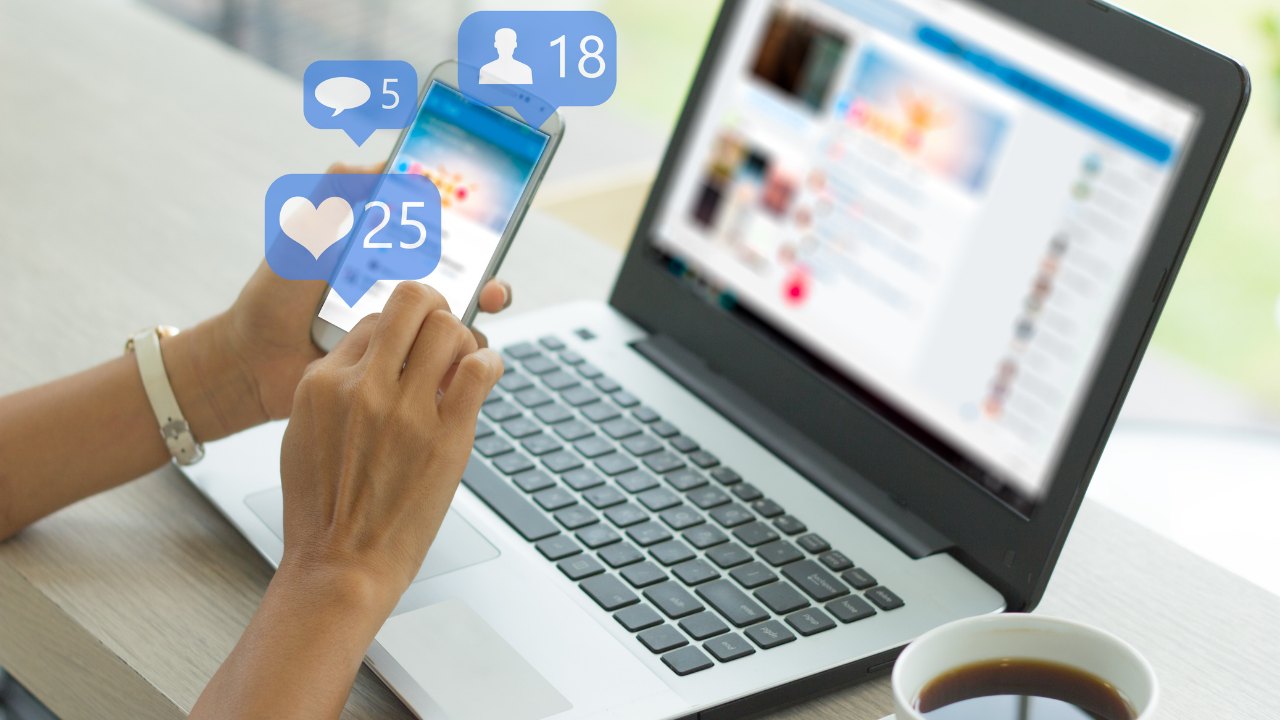How to Stop Comparing Your Body to Others on Social Media

Social media has made it easier than ever to compare ourselves to other people. It seems like no matter how much we tell ourselves not to, we still find ourselves thinking about what it would be like to “look like that”.
Scrolling through photos on a regular basis, especially images that trigger negative emotions or glorify a certain body type, can have an impact on how you see yourself.
How social media can negatively affect body image
One of the ways that social media can harm your body image is by exposing you to images of "idealized" body types, which can lead to you comparing yourself to them. A recent study has found an association between the frequency of comparing one’s own physical appearance to that of people they followed on social media and body dissatisfaction and drive for thinness.[1] Another study that surveyed 1,000 men and women found that 87% of women and 65% of men compared their bodies to images they consume on social media and traditional media.[2]
It is important to remember that every body is different. Even if we all ate the same foods and the same amount for an entire year, we STILL wouldn’t look the same. This is because each person’s genetic makeup influences their bone structure, body size, shape, and weight differently. Not to mention we all live different lives and each have different responsibilities.
Know that it’s OK to draw healthy inspiration and motivation from others when it comes to fitness and nutrition goals, but these goals must be healthy and realistic for you as an individual!
Tips for minimizing the negative impacts of body dissatisfaction:
- Examine who you are following on social media and unfollow accounts if they do not make you feel good. Instead, pay attention to accounts, people, and images that lift you up. Follow accounts that promote body positivity!
- Remind yourself that not all you see on social media is real. Know that social media images are filled with people presenting the best version of themselves.
- Express gratitude. Every morning or before you go to bed, write in a gratitude journal, listing both the small and big things you maybe take for granted that are good in your life.
- Reduce your time on social media. Give yourself a designated amount of time to check your social media accounts. You can set screen-time limits specifically for social media in your phone’s settings.
- Work on improving your body image by appreciating all that your body can do, wear clothes that are comfortable and that make you feel good about your body, stop “body-checking”, and remind yourself that “true beauty” is not simply skin-deep.
Remember: We are all beautifully unique in our own ways and it’s unfair to compare ourselves to one another. The more you practice these new thought patterns, the better you will feel about who you are and the body you naturally have.
References:
- Jiotsa, B., Naccache, B., Duval, M., Rocher, B., & Grall-Bronnec, M. (2021). Social media use and body image disorders: Association between frequency of comparing one’s own physical appearance to that of people being followed on social media and Body Dissatisfaction and drive for thinness. International Journal of Environmental Research and Public Health, 18(6), 2880.
- Link between social media & body image. (2019, October 9). King University Online.


